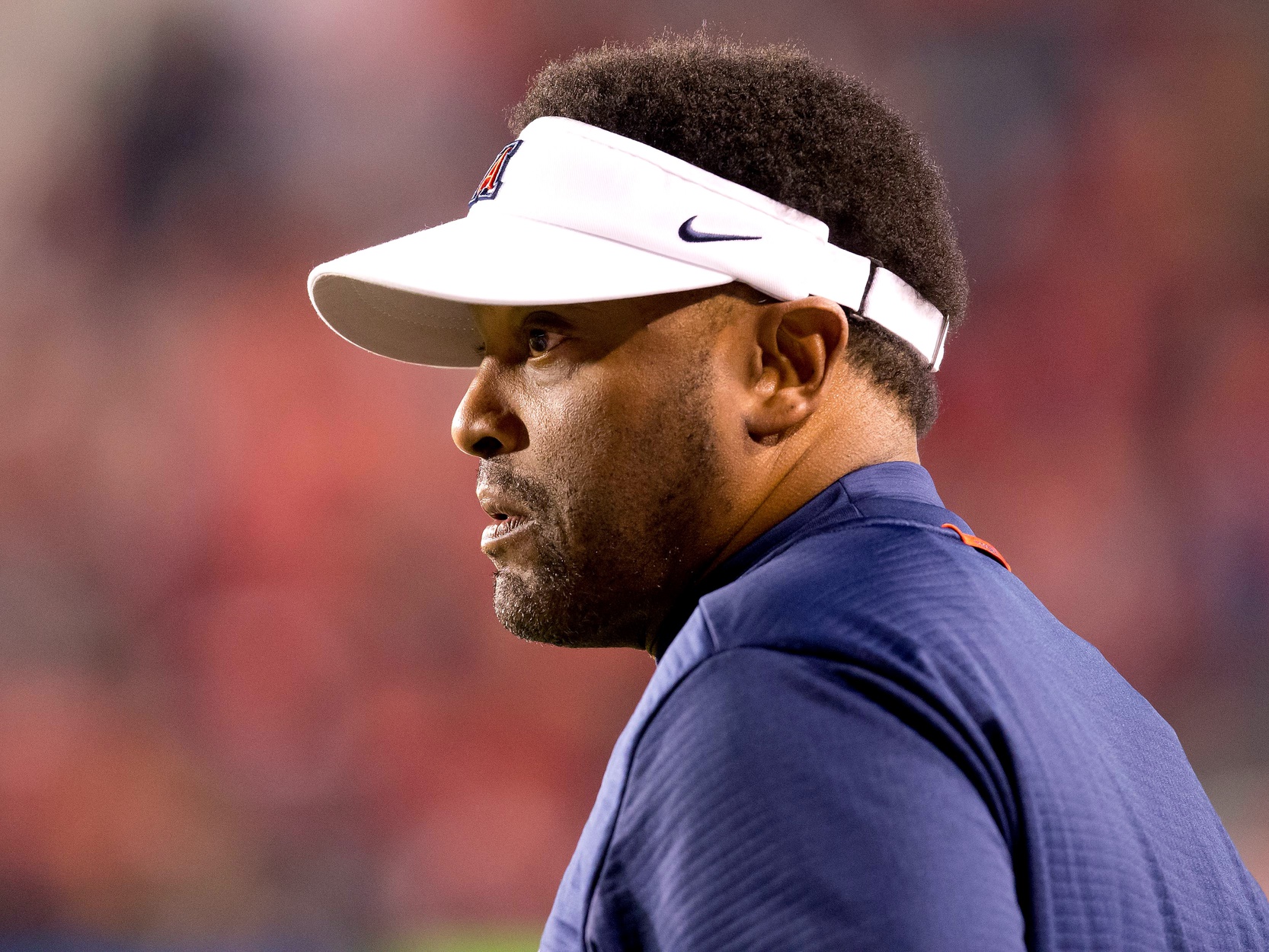
#ItMightMeanTooMuch: Why that racist, threatening letter to Kevin Sumlin was stranger than we thought
I’m a caucasian male who has coached 0 college football games. Barring some unforeseen events, neither of those things will change in my lifetime.
In other words, I have no idea what it’s like to be Kevin Sumlin.
The former Texas A&M and current Arizona coach was the subject of a threatening, racist letter that was sent to him in 2017 following the Aggies’ heartbreaking loss to UCLA in the season opener. The letter had a racial slur that said “please get lost” followed by “or else.”
The story went viral after Sumlin’s wife, Charlene, tweeted this out.
https://twitter.com/courshel/status/905942396831191040
Sumlin addressed the letter shortly thereafter.
“I get criticism, which is part of the job. I get suggestions, and that’s part of the job,” Sumlin said at the time. “In this situation, for that (letter) to come to my home and for her to open it and read that, that is completely different. … The racial (aspect) is one part of it, but the open-ended threat at the end, (sent) to my house … I’ve got to draw the line there.”
Seconded.
So why am I discussing this letter 16 months after it went viral? Well, last week we got new information about the circumstances surrounding the letter that’ll provide some key context in what looked like an all-too-real case of #ItMightMeanTooMuch.
The Houston Chronicle reported that Houstonian Robin Chiswell was identified as the man who sent Sumlin the racist, threatening letter in 2017. The report added that Chiswell was arrested last November on a separate stalking charge, which stemmed from more 20 years of stalking prominent Houston philanthropist Carolyn Farb. The letter to Sumlin was connected to a larger collection of threats. Chiswell’s bond was set at $250,000, according to The Eagle.
But there’s more to the story.
It was natural to assume that it was an A&M fan who was upset after watching the Aggies’ historic collapse to kick off the season. While it was sickening to think that a fan would react in such an offensive way, it certainly seemed possible that with a fan base that large and passionate, at least one person could do such a thing. A&M fans have had plenty of #ItMightMeanTooMuch moments, which is partially why they fit in with the SEC so well.
As it turns out, though, Chiswell was a University of Texas graduate. According to The Eagle’s report, Chiswell graduated from the Aggies’ rival school in 1983.
Oh rrrrrrrrreally.
Goodness. That’s even more pathetic than if he were an A&M fan.
Texas, as you’ll recall, isn’t scheduled to face A&M anytime soon. That subject itself has certainly added fuel to the rivalry fire since the Aggies left the Big 12 for greener pastures.
And looking back, Chiswell definitely contradicts himself. If his goal was to sound like a disgruntled A&M fan, I guess he succeeded? But as a Texas grad, telling your rival school’s coach that “he sucks as a coach” and that he should “get lost or else” doesn’t make much sense. If Chiswell really believed that Sumlin couldn’t coach, then he’d want him to stay in College Station as long as possible, right?
OK, enough of me trying to get into the mindset of someone who spends his his free time stalking people and sending racist letters.
Let’s bring this story into the 21st century. If you’re tweeting racist things about college coaches or players, reading this isn’t going to stop you from doing that. But even if you’re simply using social media as a platform to send hateful messages to college football figures, remember stories like Chiswell’s.
I don’t want to think about how many people hide behind burner accounts to tweet things at recruits pretending that they’re part of another fanbase. That just depresses me. It probably depresses people who do it when they look back at their day and realize they spent an hour on their burner account tweeting at Georgia recruits “I HOPE YOU TEAR YOUR ACL AND KIRBY PULLS YOUR SCHOLARSHIP.”
Sadly, I realize that’s not going away. College football is fueled by passionate fans and rivalries, for better or worse. You don’t have to obtain a coach or a player’s home address to make sure your threat is heard, anymore. I imagine it hits even closer to home when it shows up in a coach’s mailbox.
Charlene Sumlin was right. No part of that was OK.
No matter how crazy college football has become.
Connor O'Gara is the senior national columnist for Saturday Down South. He's a member of the Football Writers Association of America. After spending his entire life living in B1G country, he moved to the South in 2015.







